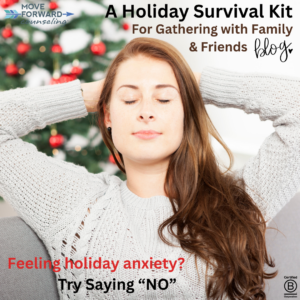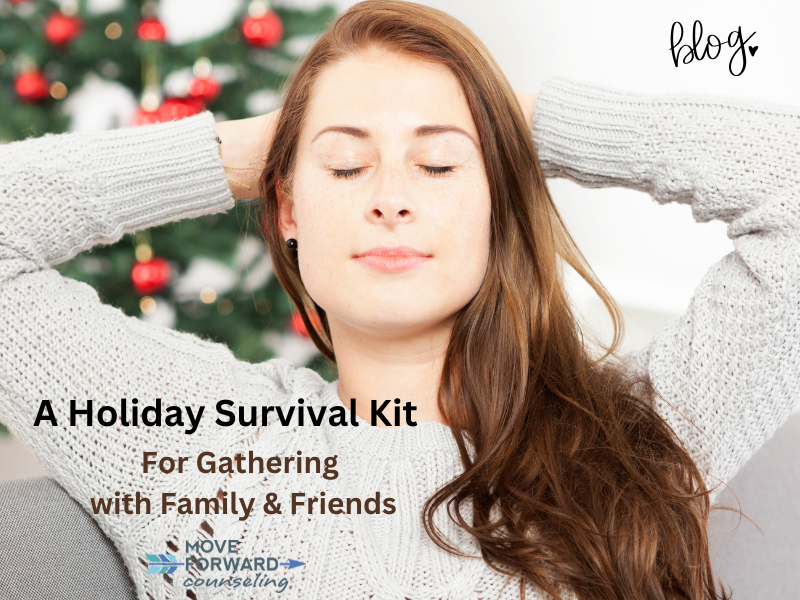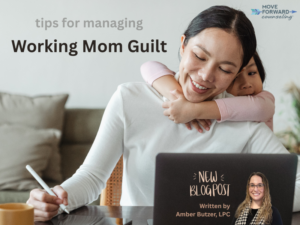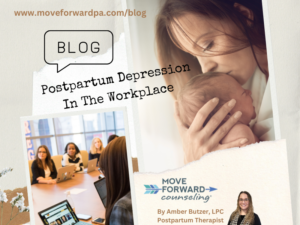You may feel like you’re switching out your “everyday anxiety” with your “holiday anxiety.” This time of the year evokes a lot of different emotions, and if you are already an anxiety-prone person, it can make things more difficult. But, no matter who you are, we can all agree that the holidays are stressful. To make things less stressful this year, consider saying “no.”
Embrace the fact that you are in control of your own life. Set boundaries with your friends and family. YOU are in charge of YOU. You can choose not to overextend yourself. You don’t have to do anything you don’t want to do.
You Do You
Boundaries are designed to keep you safe. Even if they stir up some unpleasant reactions, boundaries are healthy. They shouldn’t be so firm that they harm relationships, but they should also not be so loose that they are easily crossed. Boundaries should be a healthy balance that assists in maintaining meaningful, fulfilling relationships and keeps you feeling your best.
As you enter this holiday season:
- Be open with your friends and family about what you will and will not tolerate.
- Having boundaries in place, especially during the holidays, could help you manage your anxiety and stress on top of everyday tasks.
- Consider saying “no” to the things that will add stress. No one is a mind reader, and keeping quiet fosters resentment and stress.
Voice Your Needs
If you are pressured to host the holiday festivities but feel overwhelmed and don’t want to take on anything else, tell your family. If you’d still like to host, tell your guests what they can bring so you don’t have to do all the cooking. Let them know if your parents always expect you to stay late into the night for games or other traditions you share, but you have a long drive and want to get the kids home for bed.
Cooking
- If your friend hosts a cookie exchange every year and expects you to bring five dozen cookies and you don’t feel up to the task, say “no.”
- Instead of cooking side dishes for every get-together, purchase some instead.
- Are you struggling to create the “perfect” holiday card? Scrap the task. You don’t need to stress over something that will likely be thrown away in a few weeks.
Uncomfortable “Topics”
If there is a topic you don’t feel comfortable discussing with friends or family, it can be helpful to let them know ahead of time.
Example: “You know, Mom, I don’t want to explain to people why I broke up with Sam. Can you please not bring it up?”
If the topic still comes up during the event, calmly say, “I prefer not to talk about it,” and excuse yourself. It might seem like you are being avoidant, but you don’t have to share things you’re uncomfortable discussing.
Travel Time
Boundaries are also about compromise. Stop if you are tired of traveling to multiple homes for dinner. Make it clear to your family that you would be happy to see them the day before or the day after, or let them know you have decided to alternate every other year so that you don’t spend a good part of the day in the car. You could also ask that they come to you one year and you go to them the next. Saying “no” is ok.
It’s All About Perspective
Holiday stress can tend to take over, clouding what matters. The holidays are about spending time with family, helping others, sharing kindness and goodwill. Try shifting your perspective from your to-do lists to the meaning of the holiday season. What is important to you this time of year? How would you like to spend this time of year? Focus on what makes you feel good instead of what makes you feel stressed.
Before you get out of the car or airplane or have the family over, think about exactly why you want to see your family; what do you want to get out of these moments together?
Focus on these.
- The holidays should be a time to celebrate what you have, honor those who have passed, and be grateful for all the positive and good life has given you.
- It is not a time to put others down or to give guilt trips about never seeing each other, having children, marriage, money, careers, etc.
- It should be a time to cheer each other on, celebrate life, and enjoy the little things.
Don’t Slack On Self-Care
With all that you have to do, it is easy to forget about yourself. Make sure you take the time to care for yourself. Do the things that make you happy—read a book, take a bubble bath, get a massage, take a nap, etc. Self-care is crucial to staying healthy; your family needs you more than the perfect cookie or gift.
- Saying “no” to the things that add stress to your life is a healthy step toward taking care of yourself.
- Get enough sleep and stick to healthy eating habits. Letting everything go for the month will likely make you feel pretty crummy.
- Don’t overdo it with sweets and fancy cocktails. Continuing your regular exercise routine and being active is good for mental and physical health.
- Relax. Spend time with family. Cuddle on the couch with your children or your partner. Those are the moments that matter.
If you are struggling to set boundaries with friends or family or with stress in general, consider seeking the help of a licensed mental health professional. The therapists at Move Forward Counseling specialize in counseling for relationships, anxiety, depression, life transitions, and many other life challenges. Inquire about booking an appointment.





























